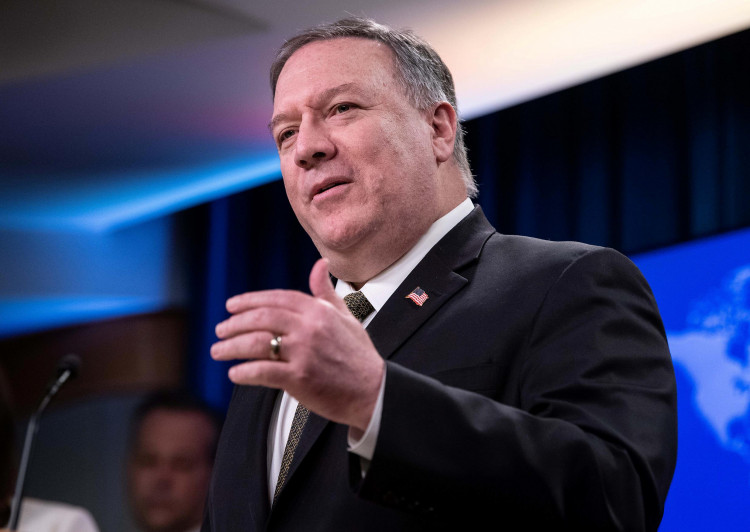The United States has formally rejected all of China's maritime claims to ownership of practically the entire South China Sea and vowed strong support for its allies in the region.
The new front targeting China, and distracting from president Donald Trump's grave domestic problems such as the COVID-19 pandemic, was launched by Secretary of State Mike Pompeo. Pompeo blasted China for its unlawful claim to own most of the South China Sea, and for bullying other Asian nations with claims to those waters.
"Beijing's claims to offshore resources across most of the South China Sea is completely unlawful, as is its campaign of bullying to control them," said Pompeo Monday.
He said the world won't allow China to treat the South China Sea as its maritime empire. He emphasized "the United States stands with its Southeast Asian allies and partners in protecting their sovereign rights to offshore resources consistent with their rights and obligations under international law."
Pompeo made the announcement even as two powerful carrier strike groups (CSGs) of the nuclear-powered supercarriers USS Nimitz (CVN-68) and the USS Ronald Reagan (CVN-76) is together patrolling the South China Sea.
On July 12, 2016, the Permanent Court of Arbitration (PCA) in The Hague ruled in favor of the Philippines and against China concerning the legality of China's "Nine-dash line claim." China said this vague map gives it ownership of most of the South China Sea and economic rights to exploit its resources based on alleged "historical rights."
The Arbitral Tribunal unanimously ruled in the Philippines' favor, affirming China has "no historical rights" to own the South China Sea based on the Nine-dash line map. The case brought by the Philippines against China (PCA case number 2013-19), also known as South China Sea Arbitration was based on Annex VII to the United Nations Convention on the Law of the Sea (UNCLOS).
China has refused to accept the arbitral tribunal's decision and has since militarized its possession and built man-made islands in the South China Sea. Pompeo also said the U.S. has aligned its position with the 2016 ruling the Arbitral Tribunal issued in favor of the Philippines. He said the court's unanimous decision rejected China's maritime claims as having no basis in international law.
He emphasized that as the United States had previously stated, the Arbitral Tribunal's decision is final and legally binding on China and the Philippines. Pompeo also assailed China's attempts to establish maritime claims inside other countries' Exclusive Economic Zones (EEZs), which legally extend 200 miles into the sea from the shore. China's claims it has rights over EEZs that lawfully belong to Malaysia, Indonesia, the Philippines, and Vietnam.
Pompeo asserted China "cannot lawfully assert a maritime claim -- including any Exclusive Economic Zone (EEZ) claims derived from Scarborough Reef and the Spratly Islands -- vis-a-vis the Philippines in areas that the Tribunal found to be in the Philippines' EEZ or on its continental shelf."
In response, the Chinese embassy in Washington D.C. called Pompeo's announcement "completely unjustified." It also accused the U.S. of stoking frictions.
"Under the pretext of preserving stability, (the US) is flexing muscles, stirring up tension and inciting confrontation in the region," said a statement from the embassy.






